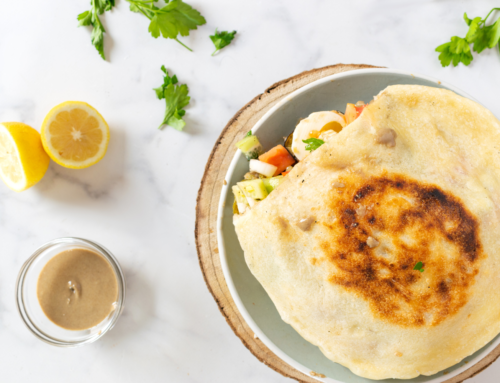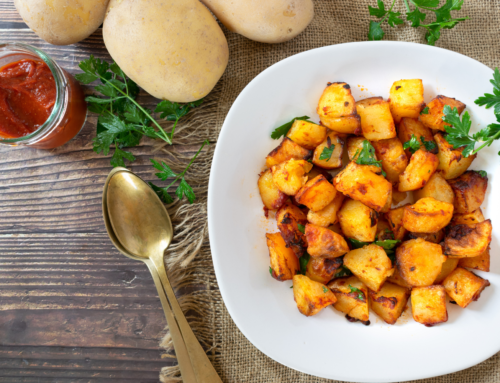The Secret Powerhouse of the Mediterranean Diet
By Bill Bradley, R.D.
Updated July 27, 2017
Back in my “eating like crap” stage of life I would have never thought that one day I would become addicted to eating bitter greens and potatoes simmered in olive oil with freshly squeezed lemon juice. Having been brought up on a steady diet of over-cooked frozen and canned spinach, peas, and broccoli slathered in slightly melted tub margarine, I only understood vegetables to be something to plow through in order to get to the Kraft Macaroni and Cheese and Tuna Helper. As an adult I learned to steam and stir fry vegetables and grew to appreciate the flavor of local produce. It wasn’t until I went to the Island of Crete, though, that I really began to crave bitter greens.
The Greek word for a variety of over 30 different types of greens is “Horta”. Most of these greens are bitter and many are eaten every day both on the mainland of Greece and the Islands. Traditionally picked by women, the horta picking process can take a whole day beginning with hiking into the mountains or forest, finding the greens (dandelion, chicory, endive, sorrel, mustard, kale, chard just to name a few); bringing them home; washing the greens (these greens often need to be washed a number of times); and then preserving them by cooking into pies, breads, and boiling in olive oil.
Crete, of course, is known for the longevity and good health of its people. The Mediterranean Diet as a whole has been shown to be beneficial for everything from diabetes to cancer to heart disease to dementia. If you ask people in Crete why they are so healthy you will hear many different answers, but one of the things you will hear often is that it is the horta. Research has shown that these bitter greens are powerhouses of nutrition. Besides being high in iron, calcium and other nutrients, most of these greens are very high in omega-3 fats and is a potent anti-inflammatory. This high nutrient count benefits the inhabitants of Crete in two ways: first, they ingest large amounts of these greens so they receive the health benefits directly; second the animals of Crete also eat these greens so the meat, milk, cheese, and eggs are packed with nutrients. Another benefit of wild edible greens is that their bitterness helps to aid digestion by stimulating the production of necessary stomach acids and digestive enzymes. They also promote natural detoxification of the liver.
While I lived in Crete, I ate horta in the restaurants and was always served it when I was invited to someone’s house. It was considered both a hard-to-come-by delicacy and a necessary food for daily consumption.
In the U.S., greens were once foraged and eaten as often as possible. Dandelion, for example, was a staple dish of early American cuisine, but was usually cooked with bacon and lard instead of olive oil and lemons. The dandelion root was even used as a coffee substitute in the 1800’s.
As America became more of an industrialized suburban and urban country we generally stopped foraging for anything in the woods and started buying our produce in the supermarket. Unfortunately, many of the nutrients have been bred out of our fruits and vegetables over the years in the quest for sweeter, easier to cultivate, and more durable produce for traveling long distances. Over the past few years though, there has been more of a focus on locally grown, which has spawned a renewed interest in such delicacies as bitter greens. Even major supermarkets have begun to carry dandelion, mustard greens, and even purslane, which is another popular green in Crete.
Here is a recipe from the Island of Crete called Horta with Potatoes. It was my favorite dish when I lived there and continues to be made weekly in our house, especially in the summer by either myself, or my wife, Christine. This recipe uses Swiss chard and spinach, but you can use any variety of wild or cultivated green.
Serve with crusty bread as a side dish with fish, chicken, or a bean dish. I hope you too become addicted to these amazing greens! Enjoy!












Winter LeBlanc says:
Winter LeBlanc says:
Bill Bradley, R.D. says: